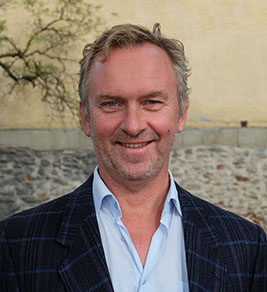Michael is no longer employed at Nordregio. For contact or more information please contact nordregio@nordregio.org
Broad background in public affairs and international relations, with a special focus on green growth, bioeconomy, climate and environmental issues. Extensive experience with editorial management and social media development as well as a seasoned moderator and presenter.
Michael is a member of the Editorial Board of Nordregio News and the management team at Nordregio.
Academic qualifications
M.A in Public Communication, American University, Washington D.C.
Master of European Studies, University of Copenhagen
Master of English and Anthropology, University of Copenhagen
Languages
Danish
English
Swedish
French
German
Prior positions
Founder and freelance director, Nordikom Communications, specialized in public affairs related to sustainable development and the green economy.
Senior Advisor/Communications at the Nordic Council of Ministers, responsible for communication strategy and branding of activities under green growth, bioeconomy, climate and environmental issues.
Communications and Project Coordinator at Stop Aids, an NGO dealing with HIV prevention and safe sex campaigns.
Director of the Information Resource Center, Embassy of the United States of America in Copenhagen, part of the Press and Cultural Affairs Section.
Program Director and hosting coordinator at AFS Interkultur, dealing with international youth exchange and organizational management.
Communications manager at DAKIV – Danish Kibbutz Friends.
